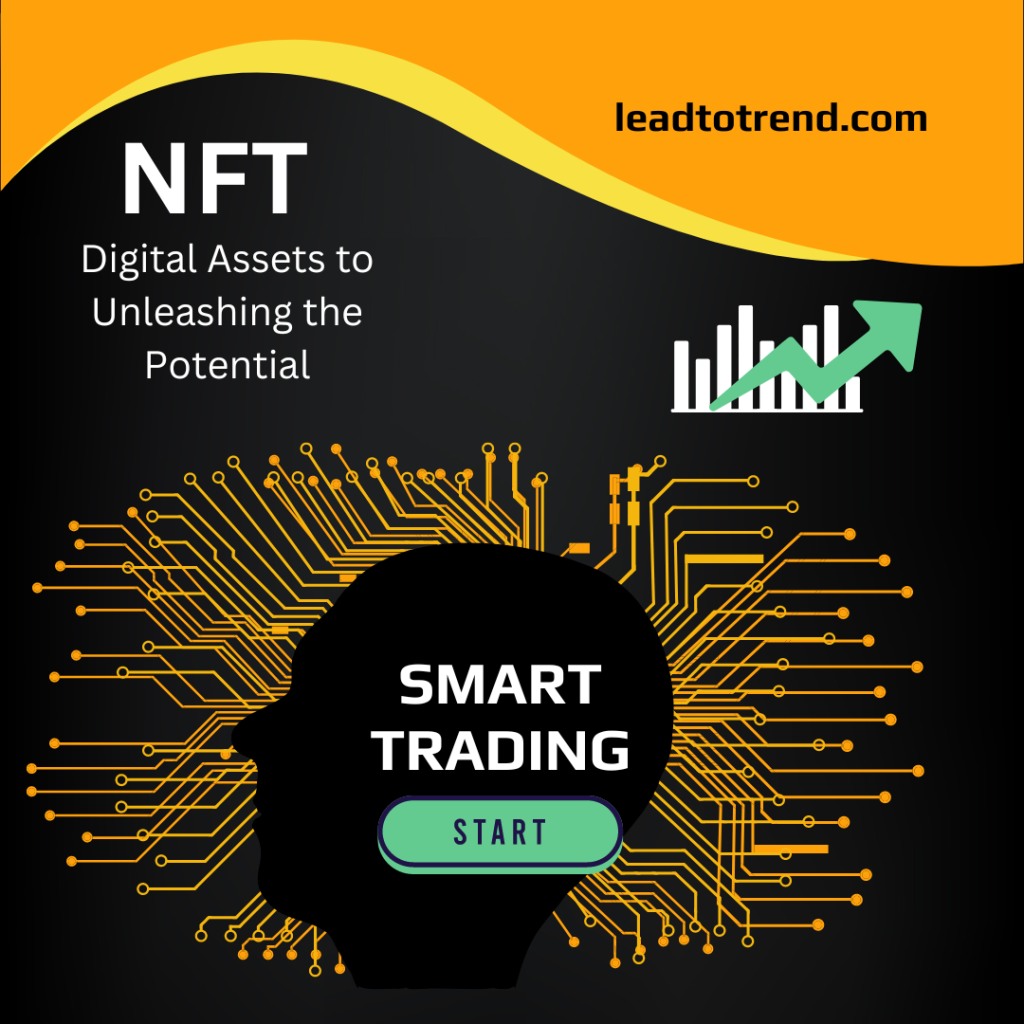Introduction:
Non-Fungible Tokens (NFTs) are a revolutionary invention that has just occurred in the NFT:Digital Assets world and has attracted the interest of artists, collectors, and investors alike. Unique digital assets may now be authenticated, tokenized, and traded on the blockchain thanks to the revolutionary NFTs technology. This phenomenon has dramatically impacted art, music, gaming, and even real estate. In this post, we shall discuss the idea of NFTs, their effects on numerous industries, and their future possibilities.
Understanding NFTs: Digital Assets;
A Non-Fungible Token essentially represents a particular digital object or value. NFT: Digital Assets have unique qualities that set them apart from cryptocurrencies like Bitcoin or Ethereum, which are fungible and can be swapped one-to-one. Each NFT has metadata that attests to its history, ownership, and legitimacy. Blockchain, a decentralized ledger that guarantees transparency, security, and immutability, is the foundation of this technology.
The Impact of NFTs: Digital Assets on Art and Culture:
By allowing artists to create, sell, and secure their Digital Assets to works. NFTs have revolutionized the art world. Due to problems with provenance and authenticity, digital art has always had difficulty gaining attention. NFTs, however, offer a remedy by providing a traceable path of ownership. Now that their works have been tokenized, artists may sell them directly to collectors, cutting out intermediaries and guaranteeing fair recompense.

Additionally, new ideas like “smart contracts” that let artists get royalties from future sales of their work have been offered by NFTs. By empowering creators and redefining the relationship between artists and their work, this feature has helped to create a more sustainable ecology.
NFTs Beyond Art: Exploring New Frontiers:
Although NFTs have mostly been prevalent in art, their potential is far greater than that. NFT usage has increased significantly in the music industry, enabling artists to offer limited-edition tracks, albums, and concert experiences. This increases fan involvement, creates new artist money streams, and upends conventional distribution paradigms.
Another industry that has enthusiastically adopted NFTs is gaming. NFTs allow owning and exchanging in-game items like characters, virtual lands, and rare objects. A new paradigm of interoperability and value has been established by enabling players to own their digital assets and transfer them between gaming platforms.
Another sector that expects to gain from NFTs is real estate. Properties on the blockchain can be tokenized for
Challenges and Future Outlook:
NFTs have enormous potential. However, there are still problems and worries. Blockchain transaction energy consumption is an urgent problem that needs sustainable solutions. Infringement of intellectual property rights, market speculation, and the volatility of NFT prices are further issues.

However, it seems as though NFTs have a bright future. As technology develops, we may anticipate more user-friendly platforms, higher scalability, and improved environmental sustainability. The NFT ecosystem will mature due to widespread use, legal frameworks, and enhanced security measures.
Conclusion:
By enabling the authentication, tokenization, and trading of distinctive NFT: Digital Assets, non-fungible tokens have entirely changed the digital environment. The traditional art, music, gaming, and real estate sectors have all been revolutionized by NFTs, which have empowered creators and changed how we view and value digital assets. Although there are still difficulties, there is much promise for innovation, economic growth, and cultural impact. As NFTs develop further, a brand-new field is emerging.


